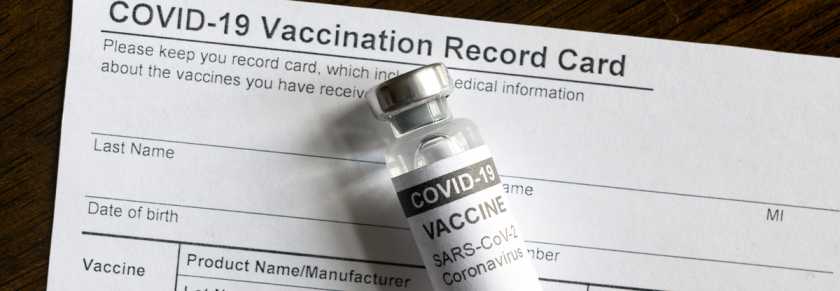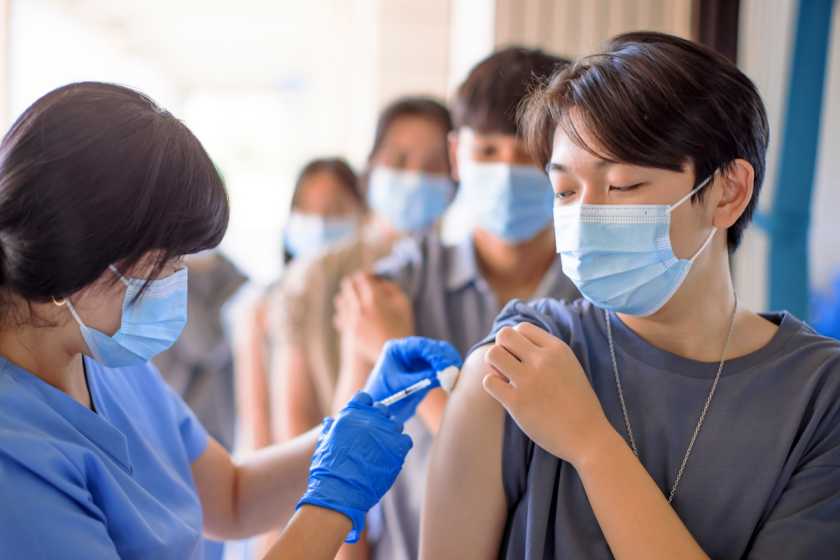COVID Vaccination Mandates and the Workplace: What Brands & Manufacturers Should Know



The coronavirus pandemic has had a significant impact on the fashion industry. 2020 was the year of lockdowns, social distancing and reduced consumer activity. As such, many businesses experienced losses or even shut down. It goes without saying that we do not need a repeat of 2020 going forward! This is why getting you and your employees vaccinated is crucial. Let’s talk about COVID vaccinations at the workplace.
Vaccine Awareness: Do Your Employees Know?
Do not assume that all your employees are aware of COVID vaccines. Some of your employees might have little or no access to social and news media. This limits their awareness as a result. Even if employees are aware, they may not have proper access to the vaccine.
Consider Bangladesh as an example. Garment workers in Bangladesh are a crucial part of the global fashion economy. But many of these workers know little about immunization. Furthermore, reports show that “only 2 percent of garment workers. . . have been vaccinated against COVID-19.” In many parts of the fashion industry.
The state of vaccine awareness and adoption in parts of the fashion industry is dismal. And brands and manufacturers should be concerned. Why? Because workers in apparel and footwear factories (especially in developing nations such as India and Bangladesh) work in confined spaces. These spaces are vulnerable to another COVID outbreak which would lead to government lockdowns. This in turn would disrupt the global fashion supply chain.
Vaccine Awareness: What You Can Do?

What can be done to improve vaccinations at your workplace? Firstly, brands and manufacturers must increase vaccine awareness among employees. This includes information about the types of vaccines available as well as how to obtain them. Also, companies must address concerns about getting the COVID vaccine as well as debunk myths about vaccination. We at Fashinza recommend face-to-face forums/panels with your employees to improve vaccine awareness.
Next, companies must consider the costs of taking a COVID vaccine for employees. Think from the employee’s perspective: to get the vaccine, they have to pay for it. Even if they get the vaccine for free, transportation to the vaccine center costs money. Employers can help reduce such costs by paying for the vaccine or offering other incentives. We will discuss more about these incentives below.
Use the Carrot (i.e. Offer Vaccination Incentives)
As noted above, many employees have to pay for the vaccine. This in turn could inhibit vaccinations. Employees can pay for vaccines outright, offer on-site vaccinations, provide remuneration or other financial incentives, grant paid leave, and offer transportation to vaccine centers. Let’s look at companies that are already doing this.
In Bangladesh for example, German textile discount store chain Kik has paid for the vaccinations of thousands of garment workers in Bangladesh. The full sum is undisclosed but is likely to be considerable. In Italy, fashion giant Gucci is set to vaccinate more than 6,000 workers in its office, factory, and retail sectors. Meanwhile in America, Walmart is offering $150 for getting the vaccine as well as paid leave for reactions to the COVID vaccine. Other retailers such as Nordstrom and Target are also following suit with similar incentives for their employees.
Use the Stick (i.e., Vaccine Mandates, Verification, Disincentives etc.)
If “the carrot” doesn’t work, the next choice is to use the proverbial “stick.” Let’s look at negative consequences and incentives you can use.
Vaccine Mandate: Pros & Cons
You can play hardball like Brunello Cucinelli. The Italian luxury fashion brand told all its workers to get vaccinated or go on paid leave. COVID vaccine mandates are increasingly becoming the norm at many workplaces. A survey of 400 HR directors in the UK “found [that] seven in 10 (70%) . . . will require staff to be vaccinated against the coronavirus.” This includes new hires as well as those workers returning to the workplace. In the fashion industry, mandatory vaccination can mean fully reopening stores and increasing business.
Keep in mind that a vaccine mandate will only work in specific contexts. For example, law professor Dorit Rubenstein cautions that a mandate is the wrong solution if the “problem is lack of access.” As noted, many workers may not have access to or afford the COVID vaccine. Vaccines may also be in short supply in a given location. Would a vaccine mandate help in such a scenario? The answer is no.
Mandatory vaccination is also easier when you have a smaller workforce to deal with. In the case of Brunello Cucinelli, its workforce was almost fully vaccinated. Thus, its mandate only applied to a mere handful of workers. Your situation may or may not be different: this will impact your ability to enforce a vaccine mandate.
Enforcing a vaccine mandate also comes with logistical challenges. For example, how do you verify each employee’s vaccination status? Do you ask them verbally or make government inquiries? Also, how do you verify status without violating medical privacy laws?
Lastly, vaccine mandates are a controversial topic that will polarize your workforce. (Indeed, this issue is a hot topic in America right now.) Some workers might quit their jobs if you make them take the COVID vaccine. This will, in the short run, impact workplace productivity. Your business may become subject to lawsuits if you enforce a vaccine mandate; the same applies if you fire employees for being unvaccinated. Also, local rules and regulations may impede your ability to enforce a mandate. To make things easier (and keep employees happier), you may want to work with unions to ensure more vaccinations. Communication and collaboration will save lives and mitigate lawsuits.
The bottom line is that there is no one size fits all approach. Several factors-personal, local, and global-determine whether a vaccine mandate at your workplace is viable or not. A vaccine mandate is also not the easiest option to enforce. You must decide how you will balance between employee liberty and workplace safety. Assess your (unique) workplace and decide whether a vaccine mandate is right for your business.
Vaccine Exemptions

Some employees in your business will have valid reasons for not getting the COVID vaccine. These reasons (i.e., exemptions) are protected by the law. It is up to employers to interpret the law and grant or deny exemptions on a case-by-case basis.
Typically, exemptions to getting the COVID vaccine fall under two types: medical exemptions and religious exemptions. Let’s take a look at both.
Medical Exemption
There are legitimate medical reasons why someone cannot get a vaccine. This means that some employees at your workplace (as per health guidelines) cannot get the COVID vaccine. For example, a person may suffer from a severe allergic reaction (i.e., anaphylaxis) from taking a vaccine. Other reasons include multi-inflammatory syndrome (MIS) etc.
For an allergy to qualify as a vaccine exemption, it must be severe, well-documented and linked to vaccination. In other words, the allergy must be severe enough to be life-threatening as well as caused by a component of the vaccine taken. The burden of proof for such a vaccine exemption also lies on the employee; they must submit a note from their health provider.
The odds of your employee having a severe allergic reaction to vaccines are very rare. In workplace policy terms, this means you won’t be granting too many medical exemptions. In the United States, the Biden administration recommends weekly testing for those who cannot or won’t get the vaccine.
Religious Exemption
(Note: The case of religious exemptions seems so far to be an American issue. Do let us know if you’re from a different country and dealing with this at your workplace).
In recent months, the Biden administration has pushed for more vaccinations. It has introduced an extensive vaccine mandate that impacts many American businesses (including in the fashion industry). This has led to the rise of Americans filing for religious exemptions.
American laws allow for an exemption to vaccines if they go against a person’s sincerely held religious beliefs. It is best to contact your local council as well as government agencies on all such matters.
Conclusion
We will conclude this article by repeating what we said at the beginning: we do not want a repeat of 2020! We hope you can do your best at ensuring a safe workplace for you and your employees. With any luck, we can achieve comprehensive (i.e., 95+%) vaccination rates in the fashion industry and put the COVID pandemic behind us.



















